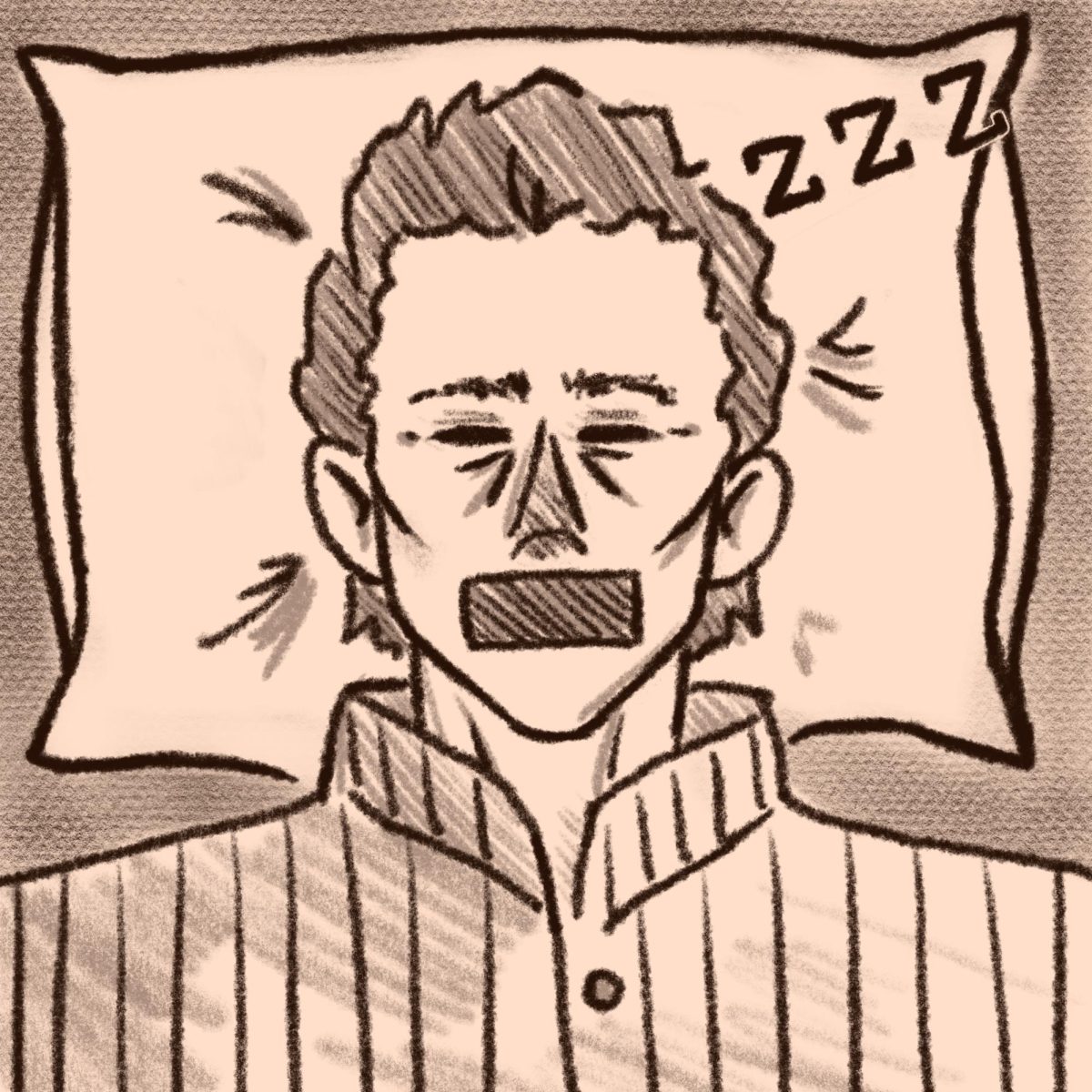Every night before he went to bed this past summer, Frank Felix ’26 put a piece of tape over his mouth.
Felix had watched videos on TikTok that suggested mouth taping, which prevents mouth breathing, can have health benefits.
“I heard about it being better for your sleep and muscle recovery, and apparently it’s really bad to breathe through your mouth when you sleep,” Felix said.
Felix eventually had to give up on the trend because it wasn’t working and made it harder for him to sleep.
“I was always tired,” Felix said. “I just couldn’t fall asleep [with it on]. If I would fall asleep, I would wake up with it off my mouth in the morning.”
Mouth taping became a trend in the early 2020s to force nose breathing. It supposedly treats issues such as snoring and improves sleep quality. It took off on TikTok, with many users advocating for the practice and even selling mouth tape on their TikTok shops.
But Jodi Mindell, Ph.D., professor of psychology and associate director of the Sleep Center at Children’s Hospital of Philadelphia, said blocking the airway while sleeping is dangerous.
“If we stop breathing, the consequences are horrible,” Mindell said. “What happens if you get congested? What happens if you roll over?”
Mindell said people usually mouth breathe at night only when their nasal cavities are blocked, and doctors will usually restrict mouth breathing only in severe cases of sleep apnea.
Little research exists on the efficacy of mouth taping. One study by researchers at the University of Nottingham in 2009 found it did not affect asthma control among 50 randomized participants. A 2022 study by researchers in Taiwan included 10 patients with obstructive sleep apnea and found that it managed to prevent patients from inhaling through the mouth but could not stop them from exhaling.
“When people have sleep apnea, we use what’s called a nasal CPAP,” Mindell said. “It’s a kind of mask that goes over the face. Sometimes it’s a little nasal pillow, sometimes it’s a mask on the face, whatever is most comfortable to stay on. Sometimes, if somebody is mouth breathing while doing that, we add a chin strap. It keeps the mouth closed so all of your breathing happens through your nose.”
Colin Monnes ’25, a successful mouth taper, is not too concerned about any possible health consequences. Monnes discovered mouth-taping on TikTok and ordered a package from TikTok Shop to try it himself.
“It was $3 in the TikTok Shop, so I said, ‘Why not try it?’” Monnes said. “It’s a little uncomfortable the first time putting it on, but I definitely woke up feeling a lot better. It definitely helped my sleep.”
Monnes said he was unsure whether the mouth tape was the cause or just a mental placebo effect, but he was sure that after he picked up the practice, his productivity and awareness in the morning had improved.
For those struggling with sleep issues or who want to address some of the problems that mouth-taping promises, experts advise talking to their primary care doctor first.
Mindell said the best way to make sure you’re at your best in the morning is to have a set sleep schedule with a bedtime and wake time that ensures enough time to get the sleep you need. She also recommended exercising frequently, avoiding alcohol and avoiding caffeine past noon.

















































